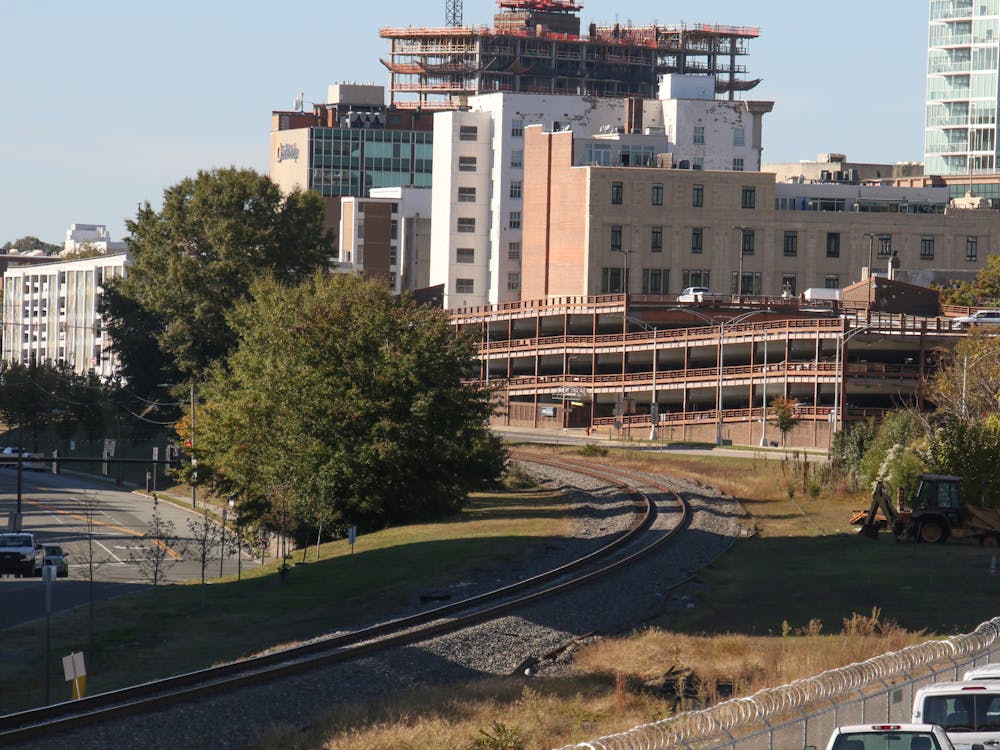For many coming to Duke from abroad, expectations about what it is like to study and live in Durham may be less clear-cut than those for more well-known cities across the nation. The Chronicle spoke to international students about their impressions of Durham and Duke before they arrived on campus and if their views have changed since.
First-year Mia Kaarls didn’t know many people from her community in the Netherlands who were knowledgeable about Durham. However, those who lived in North Carolina before told her that Durham was an “up and coming” city.
After committing to Duke, first-year Annie Du, who is from China, searched online for more information on Durham and found a source claiming that it was the "hippiest city in the U.S.”
“I don’t know if it would be really the hippiest, but it’s definitely hippie,” Du said.
Like many others, Sanjali Sharma came to Durham from India without much knowledge of what Durham would be like. However, Bull City turned out to be “more country” than she expected.
“I was hoping to live my American Dream when I came here, but it was super … rural,” Sharma said, adding that she "truly loves it here" despite it not matching her initial expectations.
Many international students heard great things about the food scene in Durham before arriving. First-year Charlotte Sutcliffe from Trinidad and Tobago recalled that people had “hyped up” the food on Ninth Street, though the food scene there turned out to be smaller than expected.
First-year Rosemina Ayieko raved about the food thus far, saying that the food scene has been great and has lived up to the reputation people from Kenya had told her about.
But for Du, the food scene fell flat. She remembers walking around downtown Durham and being surprised by the lack of big supermarkets and diversity in the food available.
“Compared to the city I used to live in, I feel like [Durham] is very small,” she said. Du added that there was “not that much to do.”
Perhaps unsurprisingly, Duke men’s basketball team is recognized internationally and plays a role in how the University is perceived.
Du said that Duke's basketball culture was one of the many reasons that drew her to apply, while Sutcliffe's only impression of Duke while applying was from a cousin who told her that “basketball is big.”
Ayieko added that basketball was the first thing people back home thought about Duke, noting that they would encourage her to attend games and send pictures she took during them.
Ayieko said she heard several stereotypes about Duke and Durham from her community in Kenya, including that the school was very conservative and predominantly white. She particularly feared that Duke and Durham would not be accepting of people of color.
“People were really worried about how I [was] going to fit into the society [at Duke],” Ayieko said.
Dadou Ikirezi, a first-year from Rwanda, had a similar experience. While people in her hometown hadn’t heard anything about Durham in particular, they warned her to “be prepared for any kinds of racism” upon learning of her ambitions to attend college in the United States.
Ultimately, both Ayieko and Ikirezi agreed that Durham and Duke did not live up to those expectations. Ayieko added that people were “much nicer than [she] expected.”
“The people here are so cool and chill and ready to be in a diverse community,” Ikirezi said.
Get The Chronicle straight to your inbox
Sign up for our weekly newsletter. Cancel at any time.
Ana Despa is a Pratt sophomore and an associate news editor for the news department.

